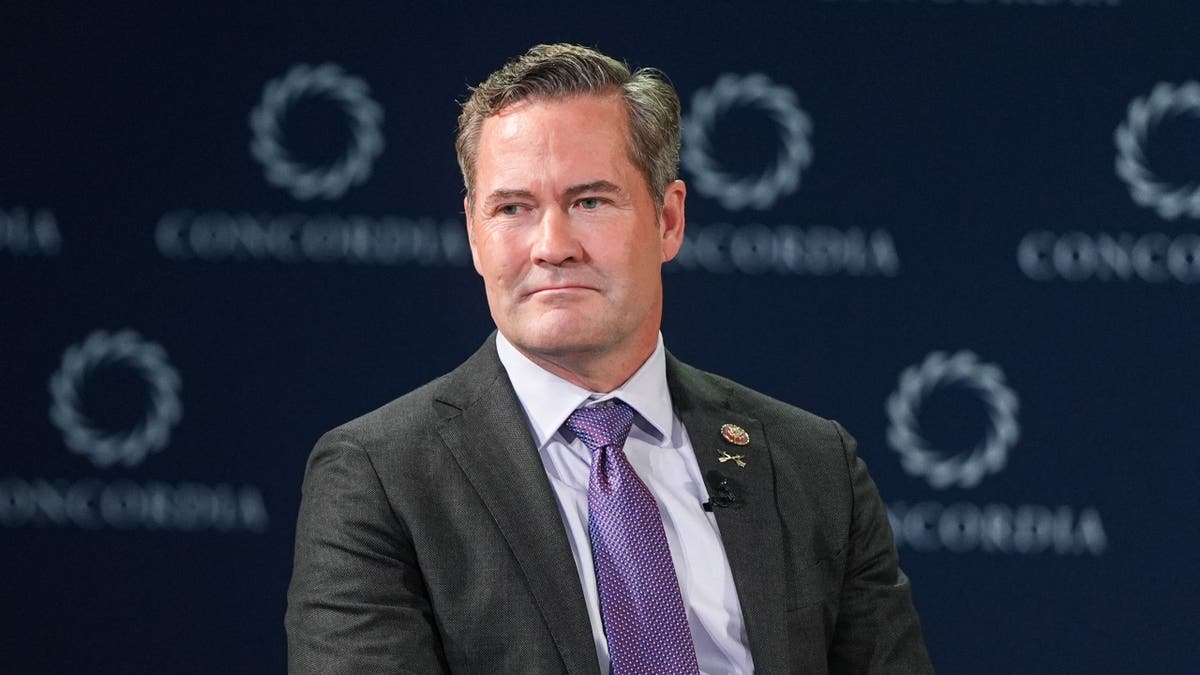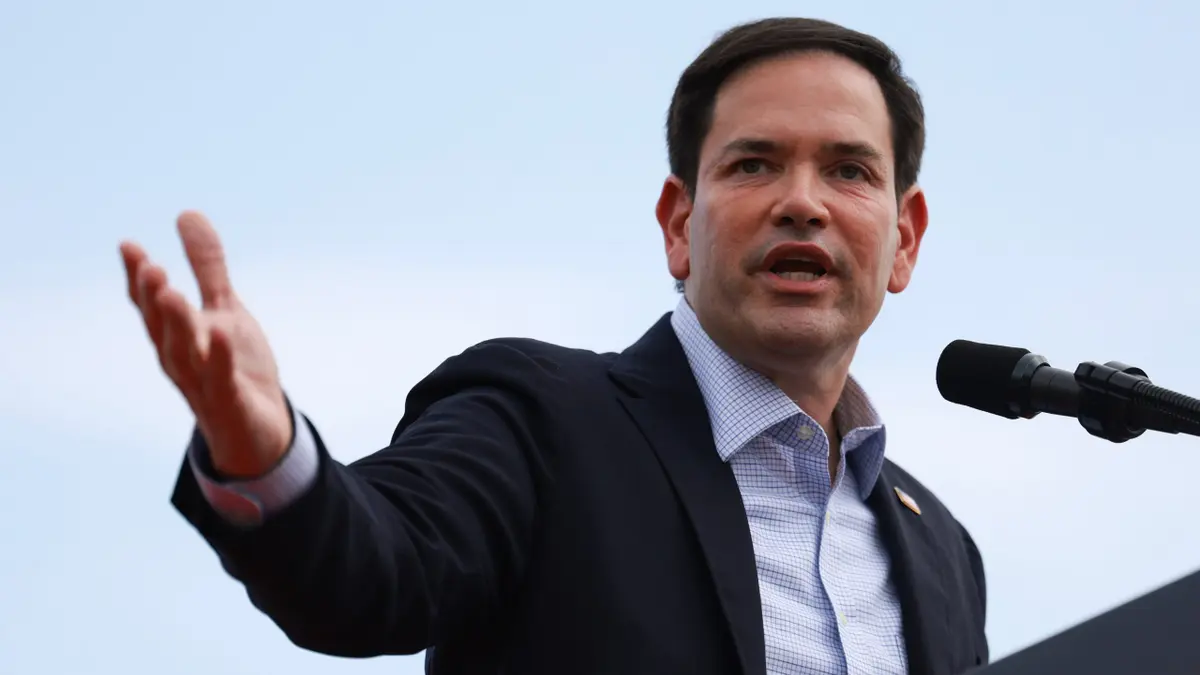Marco Rubio reportedly tapped as secretary of state
Fox News host Jesse Watters has the latest on the political announcement on 'Jesse Watters Primetime.'
Despite his own isolationist musings, the first picks of President-elect Donald Trump's incoming administration hail from a decidedly more traditionalist wing of the Republican Party.
On Tuesday, Trump formally announced that Rep. Michael Waltz, R-Fla., would be his national security adviser. Sources have said Trump is set on tapping Sen. Marco Rubio, R-Fla., for secretary of state.
Together with New York Rep. Elise Stefanik — set for the role of ambassador to the United Nations — the trio is expected to further a staunchly pro-Israel agenda.
Ukrainian advocates are also somewhat relieved.
"Kyiv looks at these appointments with some quiet relief — they clearly know there's room for engagement," one source familiar with Ukrainian operations told Fox News Digital. They added that after a Biden administration that they believe has been overly fearful of escalating U.S. involvement in the war with Russia, "a not insignificant number of senior Ukrainian officials are cautiously optimistic about what a change of pace might look like.
Waltz, who once served as a counterterrorism adviser to former Vice President Dick Cheney, is widely regarded as a hawk on China and Iran. He was vociferously opposed to President Joe Biden’s withdrawal from Afghanistan.
THESE ARE THE TOP NAMES IN CONTENTION FOR DEFENSE SECRETARY UNDER TRUMP
"What no one can ever do for me, including this administration right now, is articulate a counterterrorism plan that’s realistic without us there," Waltz said in an interview days after the withdrawal.
The former Army Green Beret officer and ex-CEO of a defense contracting company introduced legislation during the first Trump administration that would have prevented a mass troop drawdown in Afghanistan unless the director of national intelligence certified that the Taliban would not associate with al-Qaeda.

On Tuesday, Trump formally announced Rep. Michael Waltz, R-Fla., would be his national security adviser. (John Nacion/Getty Images)
"I think we're in for a long haul and I think our nation's leadership needs to begin telling the American people, 'I'm sorry. We don't have a choice. We're 15 years into what is going to be a multi-generational war because we're talking about defeating an idea,'" Waltz said about Afghanistan at the Conservative Political Action Conference in 2017.
Waltz voted for keeping the Iraq War Authorization on the books in 2021 and voted against ending U.S. support for the Saudi war in Yemen.
In an interview with NPR last week, Waltz said the war between Russia and Ukraine can end if the U.S. applies some leverage.
GOP REP. MIKE WALTZ TAPPED TO BE TRUMP'S NATIONAL SECURITY ADVISER
Russia's "war machine will dry up very quickly" with U.S. economic sanctions, Waltz said, as well as "taking the handcuffs off of the long-range weapons we provided Ukraine." Biden has long refused to allow Ukraine to use U.S. weapons to strike deep inside Russia.
Last month, when Israel conducted a counterstrike on Iran's military targets, Waltz bemoaned that it hadn't gone after Iran's oil and nuclear facilities. "Did Biden/Harris pressure Israel once again to do less than it should?" he questioned.
Rubio, meanwhile, is a noted hawk on China, Iran and Venezuela, where he has been working to unseat dictator Nicolas Maduro.
Rubio, at one time, supported U.S. aid to Ukraine, but when the matter came up again earlier this year, he was one of 15 Republicans to vote against a supplemental funding package, citing insufficient border provisions.

Sources have told Fox News Trump is set on tapping Sen. Marco Rubio, R-Fla., for secretary of state. (Joe Raedle/Getty Images)
He's been a strong proponent of U.S. support for Taiwan. When Trump raised concerns about the U.S.'s support for Taiwan and suggested the island should pay the U.S. for its defense, Rubio predicted Trump would "continue to support Taiwan" if he reclaimed the White House.
Like Trump, both Waltz and Rubio have been critical of NATO allies for not spending enough on defense. Rubio has insisted Europe should "take the lead" on its defense: "Germany, France, and the United Kingdom are more than capable of managing their relationship with the nuclear-armed belligerent to their east. But they’ll never take ownership so long as they can rely on America."
Rubio cosponsored legislation last year that would bar any president from pulling the U.S. from NATO without congressional approval, a measure that was seen as a precaution if Trump were to win the presidency and follow through with his frequent threats to abandon the alliance.
His pick triggered some backlash from some Trump die-hards who view him as too hawkish.

Together with Elise Stefanik, incoming U.N. ambassador, Waltz and Rubio are expected to advance a staunchly pro-Israel agenda. (Adam Gray/Bloomberg via Getty Images)
"Apparently there hasn’t been a SOS pick yet FYSA [for your situational awareness]," posted Rep. Anna Paulina Luna (R-Fla.) late Monday on X, after news outlets began reporting Trump had settled on Rubio.
Libertarian-minded comedian Dave Smith said Tuesday that Rubio is "a disaster."
"Might as well give Liz Cheney the State Department," Smith wrote. "Awful sign."
Stephen Wertheim, a senior fellow at the Carnegie Endowment for International Peace, said that Waltz and Rubio signal "above all, a hard line toward China not only on economics but across the board — on political, military, and ideological competition."
"The picks leave me wondering whether Trump will deliver on his sometimes restrained foreign policy promises, including his stated desire to end the war in Ukraine sooner rather than later and to see Israel wrap up its wars," he said. "I’m getting flashbacks to the first Trump administration."
But, he added, "Rubio is no longer quite the Rubio many remember from 2016."
"Rubio seems to understand that the United States faces resource constraints and needs to set strategic priorities in an increasingly competitive world."
And some restraint-minded thinkers hold out cautious optimism.
CLICK HERE TO GET THE FOX NEWS APP
"If [Rubio] channels Trump’s approach rather than pursuing his own agenda, he could redefine the state department’s role in a way that is both respected and effective abroad. Rubio knows that his future prospects are tied to his ability to execute Trump’s policy, not personal ambitions," said Jason Beardsley, senior coalitions adviser for Concerned Veterans for America.
"Having worked closely with Waltz, I can vouch for his deep understanding of America’s strategic priorities. He’s passionate about reforming the DoD from within and ensuring national security without overextending our military in costly, unnecessary engagements."














































